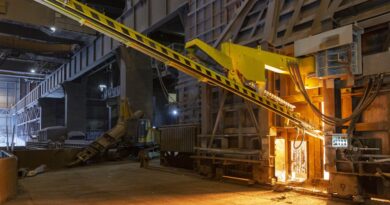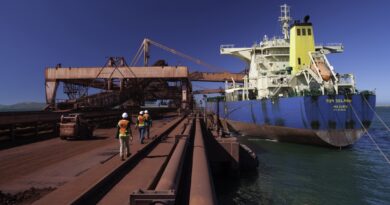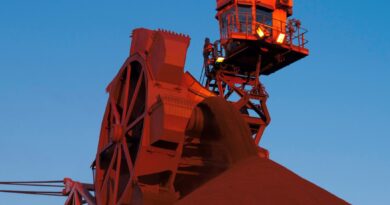Steelmaker uses blue hydrogen for climate-neutral production
GERMANY – Steel producer thyssenkrupp Steel Europe, Norwegian based broad energy company Equinor and gas transmission system operator OGE and have concluded their joint feasibility study started in October 2019 and will continue their cooperation on the topic going forward.
The goal of the venture is to evaluate the possibility to supply thyssenkrupp Steel’s Duisburg site with blue hydrogen to allow for significant CO2 reductions via a nearly climate neutral steel production in the short and midterm when other types of hydrogen, especially green, are expected not to be available in sufficient quantities to meet the demand.
The study finds that the decarbonized production and supply of blue hydrogen from natural gas to Germany’s largest steel plant in Duisburg is technically feasible. Going forward, the partners intend to continue working on further details and build the basis for potential investment decisions.
The partners are convinced that blue hydrogen as a reliable and available technology has the potential to ramp up the European hydrogen market. Especially taking into consideration the recent decision by the EU to set more ambitious climate targets for 2030, blue hydrogen can play a significant role going forward as a viable and early source for nearly climate-neutral hydrogen in large quantities and therefore in achieving these goals.
The envisioned large volumes of blue hydrogen can support establishing the necessary hydrogen pipeline infrastructure and a hydrogen economy ramp up. Thus, blue hydrogen is complementary to other hydrogen production technologies and can function as a catalyst.
The study’s premise has been the production of hydrogen from natural gas with permanent offshore storage of CO2 accrued in the process. The study has evaluated several options for sourcing and transport of hydrogen to ThyssenKrupp’s Duisburg steel production site as well as options for transport and storage of CO2.
The venture partners will elaborate details of potential production sites and will continue their dialogue with potential CO2 storage facilities including Northern Lights and Porthos. The objective in the upcoming months is to form the basis for potential investment decisions.
In this framework, it is crucial that the appropriate political and regulatory framework conditions are set to enable the fundamental transformation of an energy-intensive industry exposed to international competition.
Additionally, funding for CAPEX and OPEX intensive climate-related projects and the climate transformation will be a prerequisite for establishing a market for climate-neutral products. Possible OPEX funding mechanisms could be Carbon Contracts for Difference, CCfD or incentives for customers to source climate-neutral products.
The H2morrow steel feasibility study concludes that the entire project’s value chain could be established by 2027 at the earliest.




